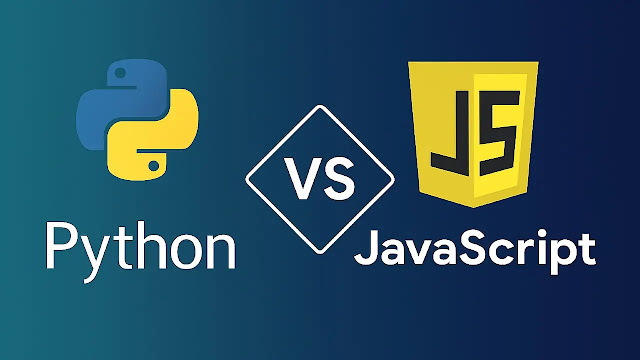Python vs JavaScript in 2025: Which One Should You Choose?
 |
| Python vs JavaScript in 2025: Which One Should You Choose? |
In the ever-evolving world of programming, two languages constantly make their way to the top of every developer’s list: Python and JavaScript. Both are super popular, widely used across various industries, and offer incredible career opportunities. But if you’re just starting out, or you’re thinking about switching languages, the big question is: Which one is better in 2025 — Python or JavaScript?
Let’s break it down in a real, honest way so you can make the smartest choice for your goals.
Why Are Python and JavaScript So Popular?
These two languages dominate the tech world — and for good reasons. They’re beginner-friendly, powerful, and incredibly versatile.
• Python is known for its simple syntax, which makes it perfect for data science, AI, and automation.
• JavaScript, on the other hand, runs the web. If it’s interactive, dynamic, or animated on a website — JavaScript is behind it.
So, when we talk about Python vs JavaScript, we’re really comparing two heavyweights in two slightly different arenas.
Key Differences Between Python and JavaScript
Here’s where we really start to see how they stack up:
1. Syntax and Learning Curve
• Python reads like English. Super clean, super easy to understand.
• JavaScript has a steeper learning curve with more quirks and browser-specific behavior.
2. Areas of Use
• Python dominates in:
• Data analysis
• Scripting & automation
• Backend development (Django, Flask)
• JavaScript is king in:
• Frontend development (React, Vue)
• Full-stack (with Node.js)
• Interactive web apps
• Mobile apps (React Native)
3. Performance
• JavaScript is faster in browser environments.
• Python is slower, but it’s ideal for tasks that aren’t time-critical (like data processing).
4. Job Market in 2025
• Python continues to explode in the AI and data science world.
• JavaScript stays essential for companies building anything online.
Comparison Table: Python vs JavaScript
| Feature | Python | JavaScript |
|---|---|---|
| Ease of Learning | Very beginner-friendly | Medium, has a few tricky parts |
| Used For | AI, data science, backend, scripting | Web development, mobile apps, UI |
| Speed | Slower than JS | Faster in browsers & runtime (Node.js) |
| Community Support | Massive, especially in AI/data fields | Huge, especially for web development |
| Syntax | Simple and readable | More complex, flexible syntax |
| Career Opportunities | High in AI, automation, analytics | High in frontend/backend dev |
Pros and Cons: Quick Snapshot
Python Pros:
• Super clean and readable code
• Amazing for data-heavy work
• Tons of libraries (NumPy, Pandas, TensorFlow)
Python Cons:
• Not ideal for mobile or frontend
• Slower in terms of execution speed
JavaScript Pros:
• Runs everywhere — browsers, servers, apps
• Essential for frontend development
• Huge ecosystem (React, Node, Vue)
JavaScript Cons:
• Syntax can be tricky at first
• Can get messy in large projects without structure
So... Which One Should YOU Learn in 2025?
Here’s the deal — it all depends on what you wanna do:
• If you're into data, AI, automation, or backend work → Go with Python.
• If you wanna build websites, UIs, or mobile apps → Go with JavaScript.
• If you're aiming to become a full-stack developer, eventually you'll need both.
And honestly? Learning both gives you serious power in the tech world. They complement each other more than they compete.
Final Thoughts: Python vs JavaScript Isn’t About “Better” — It’s About “Right for You”
Both Python and JavaScript are thriving in 2025 — and neither is going away any time soon. Instead of asking which one is better, ask yourself: “What kind of stuff do I want to build?”
Once you know that, the answer becomes crystal clear.



